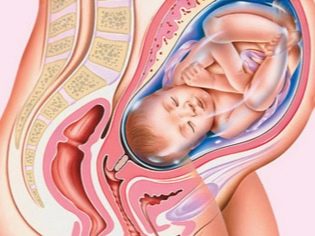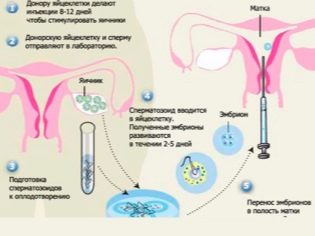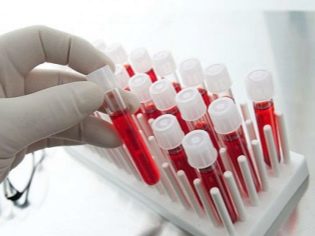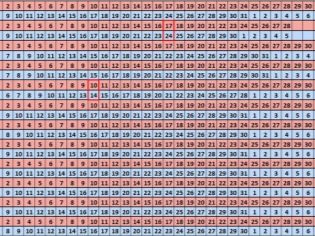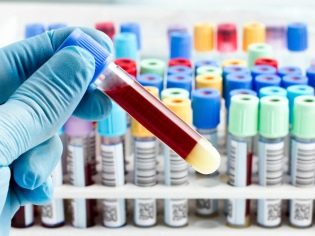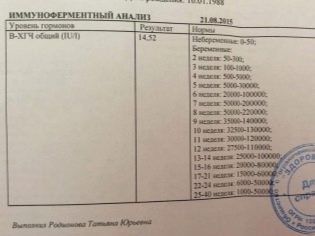HCG level in twins
The birth of twins is a great joy for loving parents. Bearing several babies at once is more difficult and has a number of specific features, including an altered hormonal balance. This article describes how chorionic gonadotropin is determined in mothers who are carrying more than one baby.
What it is?
The hCG level is a basic indicator of the course of pregnancy. With double the concentration of this substance in the blood increases significantly. An increased value of chorionic gonadotropin is observed during the implantation of embryos to the uterus wall. The more embryos, the higher the level of this hormone observed in the blood of a pregnant woman.
This biologically active substance is necessary for the female body for the implementation of many processes that begin to occur during pregnancy. This hormone helps to prepare the future mom's immunity so that a new organism with its own set of antigens will grow in its womb.
Increasing values of hCG help to normalize the changing hormones.
Indicators of this hormone usually increase in the first 7-8 weeks from the date of conception. A low level of this biologically active substance may indicate some kind of pathology during pregnancy. Also, the lack of positive growth dynamics of hCG can be a manifestation of a “frozen” pregnancy.
When carrying several fruits, this situation occurs, as a rule, in cases where one embryo, unfortunately, has died. Quite often, this is manifested in cases where conception occurred through IVF.
Screening for hCG is very important. Doctors also call it genetic. During such a study It is possible to detect various disorders of intrauterine development at an early stage.
This study is carried out absolutely to all moms who have several future babies at once.
If twins became pregnant after IVF, which is now becoming more and more common, then a study of hCG in the blood is also necessarily carried out. In this situation, doctors recommend analyzing 12-14 days after the introduction of embryos into the uterus. As the pregnancy progresses, the level of chorionic gonadotropin also increases. If IVF was performed on the background of a pronounced stimulation of the female body with hormonal preparations, then its indicators will be significantly increased.
How is the analysis done?
Such a study can be carried out both in a regular clinic and in a private laboratory. In the first case, this test is completely free. The future mother can decide for herself where she wants to conduct such research.
Come on analysis should be on an empty stomach. The last meal should be no less than 8 hours before the study. Dinner on the eve of this laboratory procedure should be, if possible, easily and without the use of fatty foods. Abuse of proteins before carrying out this analysis also should not be, as this may lead to a violation of the studied properties of blood.
To perform the study, venous blood is taken. It takes quite a bit. Typically, the test requires about 5 ml. To get the result you usually need to wait from several hours to 1-2 days.
Rate per week of pregnancy
To assess the results, doctors use a variety of tables, which are designed specifically to assess the condition of moms who have several babies at once. The values given in such designs differ somewhat from the corresponding tables used in one-child pregnancy. This situation is easily explained by the fact that when carrying several babies the values of hCG increase significantly.
Below is a table in which the normal values of this hormone in multiple pregnancies are recorded:
Gestational age in weeks | Indicators of human chorionic gonadotropin |
2 | 100-600 |
3-4 | 300-10000 |
4-5 | 20000-60000 |
5-6 | 40000-200000 |
6-7 | 100000-400000 |
7-8 | 80000-400000 |
8-9 | 70000-280000 |
9-10 | 65000-260000 |
10-11 | 60000-240000 |
11-12 | 55000-220000 |
It is important to note that these values are indicative. There are also limits of normal values. They are determined in each specific situation individually. So, if a pregnant woman used some hormonal or immunosuppressive drugs for a long time before the onset of pregnancy, then the values of this hormone in her blood may be somewhat different.
In some cases, the determination of the level of hCG in the blood by day is also used. For example, the concentration of a biologically active substance on a particular day after ovulation can be assessed as 10.17 or 21 dpo. The choice of a specific technique depends on the doctor who observes the expectant mother.
The table below shows the levels of hCG on certain days:
The gestational period on the day after the conception | The concentration of human chorionic gonadotropin, honey / ml |
8 | 4-18 |
9 | 5-21 |
10 | 8-26 |
11 | 11-45 |
12 | 17-65 |
14 | 29-170 |
15 | 39-270 |
17 | 120-580 |
Dynamics during pregnancy
It is important to note that as the fetus grows and develops in the uterus, the indices of this hormone also increase. By the time of birth, its concentration in the blood is significantly reduced. This process is physiological. The very first days after implantation, corresponding to the early stages of pregnancy, are accompanied by a rapid increase in the level of this hormone.
Evaluation of the increase in hCG in IVF may be slightly different. Some moms use a special calendar for this, which includes certain days after replanting embryos in the uterus. In this case, it is for them and assess the development of pregnancy.
As a rule, the average level of hCG for 11-13 dpp ranges from 70 to 100. At 14 dpp of the five-week transplant it becomes equal to 110-170. By 16 dpp its value reaches 260-400 HONEY / ml.
Doctors use these values for indicative purposes only. It is impossible to identify any specific deviations only according to the assessment of hCG using the daily or weekly method. To identify the pathological conditions of multiple pregnancies necessarily performed ultrasound and other biochemical analyzes. Prescribes their doctor after conducting a mandatory clinical examination of the future mother.
How are the results evaluated?
Pregnant women carrying double babies actively discuss with each other indicators of the level of their hCG by days and weeks of intrauterine development of future babies. In their conversation, they tell who had what level in the blood of this hormone at certain times of pregnancy.
During such communication, expectant mothers should be sure to remember that hCG values are averaged and cannot be applied in each specific case. Doctors distinguish hundreds of thousands of clinical situations, when the obtained values of tests, even those carried out on pregnant women of a certain duration of pregnancy, differed significantly from each other.
The value of the concentration of hCG in the blood that differs from the “girlfriend” does not at all indicate that there are any pathological abnormalities or abnormalities in the body of the future mother.
If despite the fact that the duration of pregnancy increases, and the concentration of hCG in the blood remains low, this manifestation can be very unfavorable. In this case, you should always consult a gynecologist for advice. Especially to delay this should not be future mothers who are carrying twins.
Monitor the dynamics of the content in the blood of this hormone should be during the entire period of pregnancy. The doctor at each treatment makes a detailed plan of tests that need to be done to a woman carrying several babies at once. Multiple pregnancy requires more careful monitoring of its course and development.
For information on testing for HCG, see the following video.

